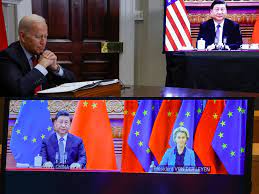Foreign direct investment (FDI in Africa looks set for a strong 2023 thanks to some lucrative mining and gas projects, but an IMF report warns countries on the continent need to build resilience to manage the inevitable shifts in trade and FDI flows.
After a lackluster investment climate during 2022, FDI flows into Africa are expected to pick up this year – with mining and gas projects leading the way. Despite the robust growth during 2021, investment flows to Africa accounted for only 5.2% of global FDI, up from 4.1% in 2020, according to the UN Conference on Trade and Development (UNCTAD) World Investment Report 2022.
FDI inflows during 2022 were weaker than 2021 in the wake of the deteriorating global economic environment and security situation. However, in 2023, “the limited supply of Russian oil and gas to Europe is leading European investors to look at Africa more closely,” says Isaac Matshego, a South Africa-based economist at Nedbank. Therefore, “we could start to see further exploration in oil and gas in Namibia and the [LNG] projects in Mozambique – stalled because of security concerns there – could resume.” The largest holders of foreign assets in Africa remained European, led by investors in the UK ($65bn) and France ($60bn).
But this relatively optimistic scenario could face challenges and the overall economic growth in sub-Saharan Africa could permanently decline if present geopolitical tensions escalate, as the recent IMF Regional Economic Outlook for Sub-Saharan Africa warned. The region could stand to lose the most if the world were split into two isolated trading blocs centered around the United States and the European Union or China.
In this severe scenario, sub-Saharan African economies could experience a permanent decline of up to 4% of real GDP after 10 years according to IMF estimates — losses larger than what many countries experienced during the Global Financial Crisis. The losses could be compounded if capital flows between trade blocs were cut off due to geopolitical tensions, stripping the region of an estimated $10 billion of FDI and official development assistance inflows. To better manage shocks, the IMF report calls on African countries to build their resilience, including by strengthening the ongoing regional trade integration under the African Continental Free Trade Area (AfCFTA).



